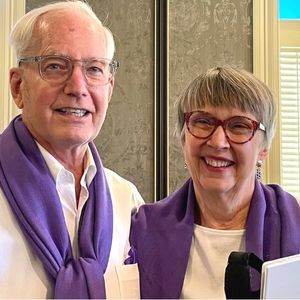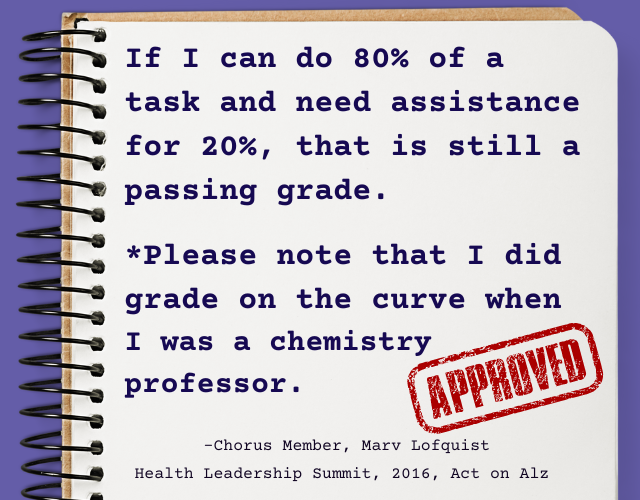If you are newly diagnosed with dementia, or if you have a loved one who is newly diagnosed, we want you to know it’s okay to ask for help.
In fact, it’s true for all people.
It’s okay to need some help.
It’s okay to ask for help.
It’s okay to accept help.
*By the way, it’s also okay to give help. Just don’t assume that someone wants your help or is ready for your help.
We got some great advice on this topic from retired chemistry professor and Giving Voice Chorus member Marv Lofquist.
Here’s what Marv had to say about being diagnosed with dementia.
“It does not negate our abilities to do things.”
“I want people to know that having a diagnosis of loss of some mental abilities doesn’t mean that you should throw everything away.”
“We have to recognize what people have, the abilities that they have.
“And not say, ‘you didn’t remember this’ or ‘you can’t do this.'”
“Instead, we can say, ‘These are the things you can do. There are still opportunities to enjoy life. And to have relationships with friends.”
Instead of focusing on the negative, let’s focus on the positive. Let’s focus on the possible.
That’s why we love this quote from a presentation Marv did back in 2016 for Act on Alz.
“If I can do 80% of a task and need assistance for 20%, that’s still a passing grade.
“Please note that I did grade on the curve when I was a chemistry professor.”
We love this perspective.
After all, we all have good days and bad days. And, sometimes, we all need a little help. But that shouldn’t define us.
Whether you have been diagnosed with dementia or not.
So, if you need have been diagnosed with Alzheimer’s or another dementia, and you need some assistance, or your loved one needs some assistance, are you shifting your thinking?
As Dr. Al Powers points out in Dementia Beyond the Disease, As we age, we all have things we used to be able to do that we can’t do anymore.
Is it okay if we can’t run as fast or do cartwheels? Drive at night?
If we can make allowances for these types of activities, why not cognitive abilities?
Here’s the thing. For most people, engaging in activities, making friends, and finding community can be life-changing.
This also holds true for people diagnosed with dementia.
Maybe things look different. Maybe things don’t look different yet. But there is still value. As Marv says, we need to “give that respect to ourselves. And say, ‘Yes. I can still work at doing this.'”
Let’s be honest.
Who doesn’t love a teacher that grades on a curve?

Interested in learning more about Giving Voice Chorus and choruses like ours across the country? Wondering why choruses for people with Alzheimer’s or other dementias? Find out more here.
Like this post? Click here for our previous blog post Meaningful living after a dementia diagnosis

